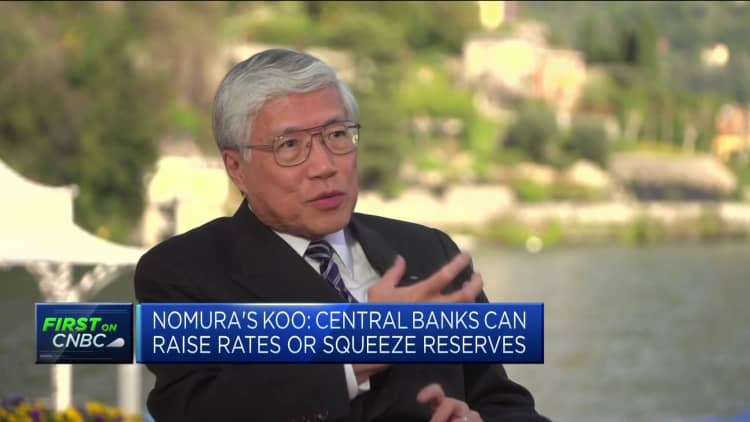Klaus Vedfelt | Digital vision | Getty Images
A version of this article first appeared in CNBC’s Inside Wealth newsletter with Robert Frank, a weekly guide for wealthy investors and consumers. Sign up to receive future issues straight to your inbox.
The wealth gap between wealthy Millennials and the rest of their age group is the widest of any generation and is fueling a new wave of class tensions and resentments, according to a recent study.
Although the vast majority of Millennials struggle with student debt, low-paying service jobs, unaffordable housing, and low savings, the Millennial elite is outperforming previous generations. According to the study, the average Millennial at age 35 has 30% less wealth than Baby Boomers at the same age. Yet the top 10% of Millennials have 20% more wealth than the leading Baby Boomers of the same age.
“Millennials are so different from one another that it doesn’t make much sense to talk about the ‘average’ Millennial experience,” wrote the study’s authors, Rob Gruijters, Zachary Van Winkle and Anette Eva Fasang. “There are some Millennials who are doing very well – think Mark Zuckerberg and Sam Altman – while others are struggling.”
The study concludes that Millennials – now commonly defined as those between the ages of 28 and 43 – have faced repeated financial headwinds. Because they come of age during the financial crisis, they have lower rates of home ownership, higher debts that exceed assets, low-paying and unstable jobs, and lower rates of starting dual-income families.
At the same time, the authors say the top 10% of Millennials have benefited from higher rewards for skilled jobs. As they put it, “Returns to high-status work histories have increased, while returns to low-status work histories have stagnated or declined.”
According to the report, millennials who “went to college, got graduate-level jobs, and started families relatively late” had “higher wealth than baby boomers with similar life trajectories.”
The great wealth transfer
There may be another factor that creates so much wealth for Millennials: inheritances. Baby boomers are expected to pass on between $70 trillion and $90 trillion in wealth over the next 20 years in the so-called “great wealth transfer.” Much of it is expected to go to their millennial children. According to Cerulli Associates, high net worth individuals with assets of $5 million or more will account for nearly half of that total.
Wealth management firms say some of that wealth is already being passed on to the next generation.
“The great wealth transfer that we have all been talking about for a decade is underway,” said John Mathews, head of private wealth management at UBS. “The average age of the world’s billionaires is currently almost 69 years old. So this whole transition or wealth transfer is going to accelerate.”
Tensions between the millennial classes are likely to escalate as more wealth transfers in the coming years. The display of wealth by millennial “nepo-babies” on social media could exacerbate intergenerational class warfare and encourage non-wealthy millennials to overspend or create the appearance of lavish lifestyles to keep up.
A Wells Fargo survey found that 29% of wealthy millennials (defined as having between $250,000 and over $1 million in assets) admit that they “sometimes buy things they can’t afford to impress others.” According to the survey, 41% of wealthy Millennials admit to financing their lifestyle with credit cards or loans, compared to 28% of Generation X and 6% of Baby Boomers.
The battle between rich millennials and the rest could also influence their attitudes toward wealth. For over four decades, the vast majority of millionaires and billionaires created in America have been self-made, mostly entrepreneurs. A study by Fidelity Investments found that 88% of American millionaires are self-made millionaires.
But inherited wealth could become more common. A UBS study found that among newly minted billionaires last year, heirs who inherited their wealth accumulated more wealth than self-made billionaires for the first time in at least nine years. And all of the billionaires under 30 on the latest Forbes billionaires list have inherited their wealth for the first time in 15 years.
“Extreme” wealth
The increase in wealth among Millennial heirs is also creating a lucrative new market for wealth management firms, luxury companies, travel companies and real estate agents.
Clayton Orrigo, one of Manhattan’s top luxury real estate agents, has built a thriving business with wealthy millennials. The founder of the Hudson Advisory team at Compass has sold over $4 billion in real estate and regularly brokers deals in excess of $10 million. He says the “vast majority” of his business lately has come from buyers in their 20s and 30s with inherited wealth.
“I just sold a $16 million apartment to someone in their mid-20s, and the buyer accessed the family fund,” he said. “The wealth behind these children is extreme.”
Inherited wealth has become Orrigo’s specialty. He says he works to build close relationships with family offices, trusts and the young money elite who meet at New York members’ clubs like Casa Cipriani.
The pattern is familiar: a wealthy family calls and wants a rental for their son or daughter; A few years later, they want to buy a two-bedroom condo in a new high-security building downtown for $5 or $10 million.
“My job is to work very quietly and very discreetly with the richest families in the world,” Orrigo said.
Sign up to receive future editions of CNBC’s Inside Wealth newsletter with Robert Frank.
Source link
2024-04-26 20:47:22
www.cnbc.com















